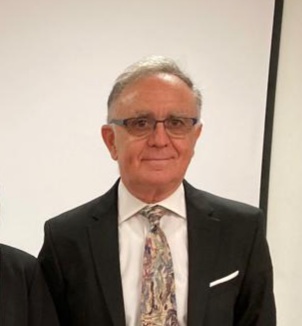Singing workshop. How to transmit emotions with the voice
Dates: October 10, 17, 24 and November 7
Time: 14 to 16 h
CLASSROOM 2
20 places
General rate: 90€.
Fee for students: 35€.
Workshop given by Luis Miguel Alonso Nájera
An approach to the voice and its possibilities as an instrument of communication and transmission of emotions.
This workshop is aimed at students interested in the voice and is a first approach to its nature, its possibilities as an instrument of communication, of live transmission of information -in its broadest sense- and emotions. Within our five senses, acoustic perception achieves a singular degree of connection, of intimate and sensitive link between the person and/or emitting source and the receiving person.
Like any human expression that wants to transcend beyond the merely functional, the use of the voice, the development of its immense possibilities, must combine a deep technical knowledge with the emotional flow that every good emission, spoken or sung, always carries with it.
To this end, the workshop includes a presentation of the physiological nature of the voice, the characteristics of the emission, the two main fields of the spoken voice and the sung voice and the application, resources and expressive possibilities in each case.
In addition to theoretical explanations, practical examples of both spoken and sung voice will be worked on, according to the particular interests of the students.
Each session is expected to include both theoretical content and practical work with the students.
As a guideline, the following distribution is proposed:
SESSION 1
1 - Nature of the human voice. Mode of emission. Hygiene of the voice. Most frequent errors in the use of the voice.
2 - The human voice and the sung voice - Aspects in common and differences.
3 - Natural emission of the voice and amplified emission.
4 - Practical work from the knowledge of the students: reading, improvisation, singing.
SESSION 2
1 - Vocal technique and interpretative emotion. Reason and emotion in art.
2 - Oral communication in front of an audience:
a) General approach. Conviction. Honesty. Theatrical" attitude.
b) Contents - Speech outline.
c) Intonation, projection.
d) Time control.
3 - Practical work.
SESSION 3
1 - The sung voice - Various lyric genres:
a) Lyric theater: opera, operetta, zarzuela, musical.
b) Oratorio genre. c) Song, lied. d) Symphonic - vocal.
2 - Projection and analysis of comparative examples.
3 - Practical work.
SESSION 4
1 - Analysis of a lyric work according to author, historical context, etc.
2 - Validity of the classical lyric forms in the contemporary world.
3 - Revision of the questions exposed in the workshop.
4 - Practical work.
Luis Miguel Alonso Nájera
 Doctor of Architecture from the University of Navarra. He began his studies of solfeggio and singing at the Pablo Sarasate Conservatory of Pamplona, to continue his classes with various private teachers. He has also taken courses in vocal technique with professionals in the field. She played the role of Ruiz in the opera production of the opera Il trovatoreHe has participated as a member of the chorus of the A.G.A.O. in several productions from 2002 to the present. He has participated as an actor in the stagings of The Beggar's Opera (The Beggar's Opera) and Hänsel and Gretel which Ópera de Cámara de Navarra (OCN) performed at the Teatro Gayarre in Pamplona.
Doctor of Architecture from the University of Navarra. He began his studies of solfeggio and singing at the Pablo Sarasate Conservatory of Pamplona, to continue his classes with various private teachers. He has also taken courses in vocal technique with professionals in the field. She played the role of Ruiz in the opera production of the opera Il trovatoreHe has participated as a member of the chorus of the A.G.A.O. in several productions from 2002 to the present. He has participated as an actor in the stagings of The Beggar's Opera (The Beggar's Opera) and Hänsel and Gretel which Ópera de Cámara de Navarra (OCN) performed at the Teatro Gayarre in Pamplona.
He is the author of several texts in prose and verse, and has collaborated with the periodical magazine of the Navarra School of Theater, in which he has published several texts about the relationship between the architectural space built for the show and the human activity carried out inside. For years he has been teaching courses with monographic sessions on topics related to the lyric. He is currently president of the Asociación Gayarre de Amigos de la Ópera de Navarra.
Date
October 10, 2022
Time
14:00